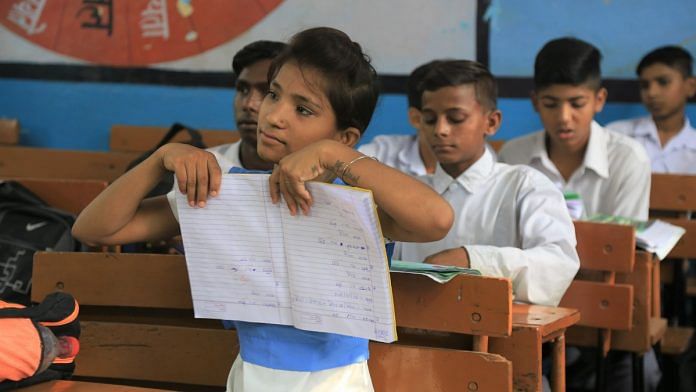New Delhi: A push for the tourism sector, a campaign for communal harmony, multi-level bus depots, a holistic education programme for preschoolers, a behavioural push for women’s safety, and Delhi’s own education board — the budget presented by the Arvind Kejriwal administration in Delhi boasts of many ideas aimed at providing an overall thrust to governance in the national capital.
The Delhi budget 2020-21 was presented Monday afternoon by Deputy Chief Minister and Finance Minister Manish Sisodia.
The initiatives proposed include a scheme called “Branding Delhi”, which seeks to ensure that every tourist spends at least two days on average in the capital. According to the Delhi government, “only one day will create millions of new jobs in New Delhi and new opportunities for economic growth”.
This year’s Delhi riots, which led to the death of nearly 50 people, also found a mention in Sisodia’s speech as he underlined the need to heal the union territory’s bruised peace.
The government has proposed a “Campaign for Communal Harmony”, which was announced as part of the budget for the tourism sector. The details about the exact nature of the campaign weren’t immediately available, with officials in the Delhi government telling ThePrint that they will be worked out in the time to come.
Also Read: Delhi riots neither designed by Modi govt, nor Islamic conspiracy. It’s far more dangerous
Free bus services to continue, new multilevel bus depots
A key initiative for the transport sector was the proposal to convert the four bus depots at Okhla, Harinagar, Vasant Vihar and Hasanpur into multi-level bus depots. The Delhi government claims they will probably be the first multi-level depots in India.
The proposal was also mooted in 2018 after Transport Minister Kailash Gehlot returned from a study tour on China’s public transport system, especially its electric buses and the related infrastructure.
The Delhi government aims to equip the multi-level depots with charging facilities for electric buses, thus also encouraging green public transport.
Meanwhile, new low-floor buses will be inducted and the government has promised to make Delhi’s public transport the “largest and cheapest system” in the country.
The Delhi government has promised to continue with free bus rides (in DTC and cluster buses) for women, introduced in October 2019, through the next financial year too.
Delhi’s own board of education
One-fourth of the total budget this year has been allocated to the education sector, which was a key focus area for the AAP government in its first term as well. Sisodia, who is also the Education Minister, said “Delhi will have its own education board now with a focus on understanding and learning rather than scoring marks by rote learning”.
Other initiatives in the sector include a new law for early childhood education that aims at introducing innovative techniques that facilitate holistic development in children aged 3 to 6 years in Delhi schools.
Sisodia also announced the establishment of a Delhi Teachers University.
Also Read: Kejriwal’s safety plan: Should Delhi women get special treatment with free public transport?
Free sewer connections for Delhiites
In yet another freebie for Delhi residents, who already enjoy subsidised power and free water, the budget introduces the “Mukhyamantri Muft Sewer Connection Yojna” for free sewer connections.
Under the scheme, the Delhi Jal Board will provide sewer connections to residents’ homes at its own expense, including the installation fee. Among other things, a Delhi government official said, the initiative will help cease the release of sewage into the Yamuna.
To ensure women’s safety
Highlighting the need to ensure women’s safety, the Delhi government has proposed a scheme called “Behavioural Changes for Safety of the Women” that prioritises awareness to trigger behavioural change in society.
Under the section for social security and welfare, the Delhi government has pitched for immediate free medical treatment of disabled persons under a new scheme called “Mukhyamantri Divyangjan Punravas Yojana”. Similarly, the government has announced a “Mukhyamantri Vidyarthi Pratibha Yojana” that promises scholarships to SC/ST/OBC/minority students for classes 9 to 12. This was a key campaign promise of the AAP as it sought re-election earlier this year.
Also Read: Rs 20 for each Delhi resident — what AAP govt budget outlines to fight COVID-19 pandemic



